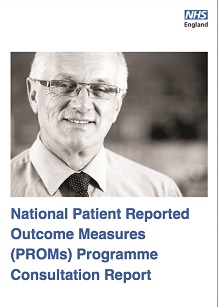Technical review - November 2017
The HFMA has issued a briefing on the apprenticeship levy, which updates the discussion document issued in December 2016. All employers pay into the levy, but there are different arrangements for how or if they can then access funding to support eligible apprenticeships. In England, NHS bodies will be able to draw down resources from their own digital fund. The earlier HFMA document identified three possible accounting treatments for the apprenticeship levy. The accounting firms have now settled on one treatment that was discussed in the technical review (Healthcare Finance December 2016), with different approaches depending on whether the body intends to run eligible apprenticeships or not. However, the Department for Education is still considering its approach. The Department of Health will mandate the accounting treatment in an update to the group accounting manual – it is hoped, before month 9 reports are due.
An upfront charging operational framework to support the identification and charging of overseas visitors has been published by the Department of Health. NHS bodies are required to establish whether a person is an overseas visitor to whom charges apply and to recover charges for non-urgent services in full and advance. The requirement for upfront charging was previously recommended practice. A guidance document sets out the different roles of clinicians and administrative support staff and sets out the steps needed to estimate costs for upfront charging purposes using a cost estimate price list, which has been published by NHS Improvement. The prices are not mandatory for providers to use and do not need to replace existing pricing practice where a system is in place that works.
The HFMA has launched a diagnostic tool to help sustainability and transformation partnerships develop their governance arrangements. Developed by the association’s Governance and Audit Committee, the tool will underpin board, governing body or audit committee discussions by identifying areas where strong arrangements are in place and where more work is required. 
The mandatory national collection of patient recorded outcome measures (PROMs) for varicose vein surgery and groin-hernia surgery is being discontinued, NHS England has announced. But hip and knee surgery PROMs will continue to be collected. The decision follows a 2016 consultation on how the PROM programme is working, which raised concerns about the lack of specific metrics and generic nature of the varicose vein and hernia data. NHS England said it would ‘seek to drive digital collection of PROMs data’, which would reduce the collection burden and increase timeliness of data. It is also working with NHS Digital to establish an accredited PROMs supplier list to open the suppliers market to new ideas and innovations.
NHS providers have been reminded that they will be expected to complete the 2016/17 corporate services data collection template by 17 November. The template was scheduled to be issued at the end of October and will cover cost and performance data across seven corporate service areas, including finance, payroll, HR and legal functions. The corporate services compartment within the model hospital went live for all provider sectors in September.
HM Revenue and Customs has written to NHS finance directors to clarify the rules around the VAT treatment of salary sacrifice lease car arrangements. The move follows the ruling on VAT and a salary sacrifice scheme for employees at pharmaceutical firm Astra Zeneca. The letter includes an FAQ outlining some of the detail of the HMRC review of VAT treatment of salary sacrifice lease cars in the NHS.
Related content
The Institute’s annual costing conference provides the NHS with the latest developments and guidance in NHS costing.
The value masterclass shares examples of organisations and systems that have pursued a value-driven approach and the results they have achieved.